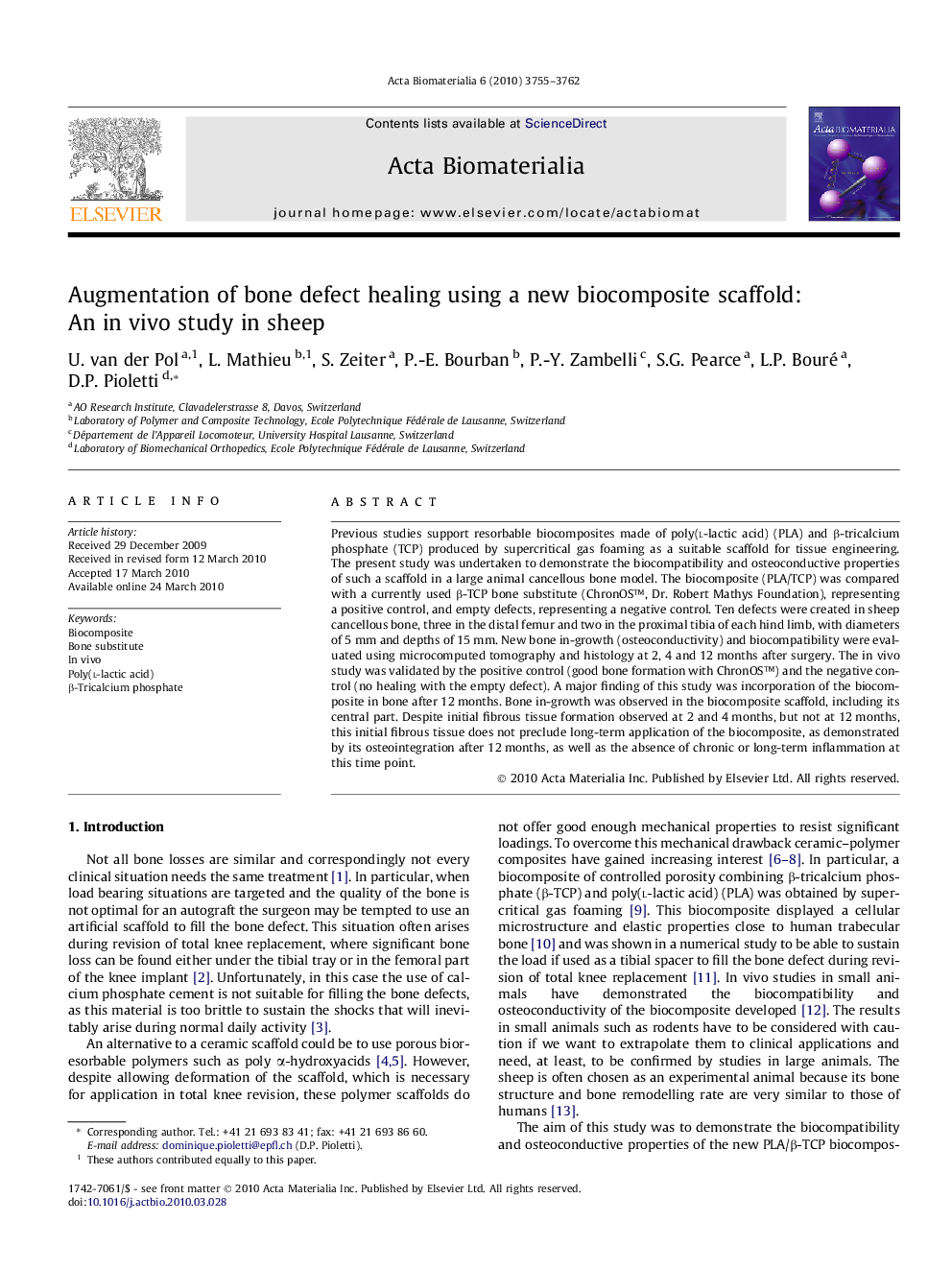| کد مقاله | کد نشریه | سال انتشار | مقاله انگلیسی | نسخه تمام متن |
|---|---|---|---|---|
| 2172 | 101 | 2010 | 8 صفحه PDF | دانلود رایگان |

Previous studies support resorbable biocomposites made of poly(l-lactic acid) (PLA) and β-tricalcium phosphate (TCP) produced by supercritical gas foaming as a suitable scaffold for tissue engineering. The present study was undertaken to demonstrate the biocompatibility and osteoconductive properties of such a scaffold in a large animal cancellous bone model. The biocomposite (PLA/TCP) was compared with a currently used β-TCP bone substitute (ChronOS™, Dr. Robert Mathys Foundation), representing a positive control, and empty defects, representing a negative control. Ten defects were created in sheep cancellous bone, three in the distal femur and two in the proximal tibia of each hind limb, with diameters of 5 mm and depths of 15 mm. New bone in-growth (osteoconductivity) and biocompatibility were evaluated using microcomputed tomography and histology at 2, 4 and 12 months after surgery. The in vivo study was validated by the positive control (good bone formation with ChronOS™) and the negative control (no healing with the empty defect). A major finding of this study was incorporation of the biocomposite in bone after 12 months. Bone in-growth was observed in the biocomposite scaffold, including its central part. Despite initial fibrous tissue formation observed at 2 and 4 months, but not at 12 months, this initial fibrous tissue does not preclude long-term application of the biocomposite, as demonstrated by its osteointegration after 12 months, as well as the absence of chronic or long-term inflammation at this time point.
Journal: Acta Biomaterialia - Volume 6, Issue 9, September 2010, Pages 3755–3762